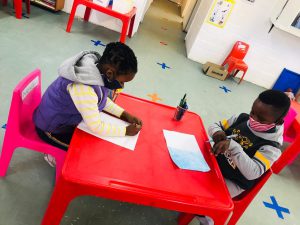
Covid-19 has decimated global economies, caused hard lockdowns in almost every country and changed the way we perceive normal life. In all the chaos, we have had to adapt our daily routines to continue with life as we once knew it. What about basic needs like education? With strict social distancing rules and hygiene protocols imposed, schools are doing their level best to keep students engaged and learning.
Technology is constantly evolving and changing the way we interact with the world. However, children in informal settlements do not have the same privileges as children in more developed communities. Follow us as we probe education during the pandemic and the massive efforts made by various organisations to help children, parents and teachers during these uncertain times.
Zero Rate Mobile Data for Educational Resources
The South African government took steps towards zero rate mobile data earlier this year when they ordered key health and educational websites be made free to access online. In May 2020, the Department of Basic Education approved 39 websites for zero-rating. These websites belong to organisations who provide literacy and learning resources for children. It was a crucial starting point, especially for children in informal settlements.
According to DG Murray Trust, “Most children in informal settlements and rural areas have access to a feature phone, albeit with limited connectivity.”
This initiative was difficult to implement across network providers in South Africa. Initially nothing really happened, so, DG Murray Trust advocated the struggle to get networks to comply. After legal suits were filed and a host of communication all 39 websites were zero-rated across all networks.
Free to Air Television for Matric Learners
Due to Covid-19, interruptions in the school calendar wreaked havoc on all grades, especially for grade 12 learners. The Minister of Basic Education, Mrs Angie Motshekga launched an initiative called Woza Matrics. The 12 Week, free to air television programme Woza Matrics kicked off on the 1st of September.
The aim of the campaign is to support grade 12 learners in the build up to their final matric exams by providing quality education content in the following subjects: Maths, Life Sciences, Geography, Physical Science, Accounting, Economics, Math Literacy, English First Additional Language, History and Business Studies.
Masicorp’s Massive Heart
Masicorp took it upon itself to be a part of the solution and keep learning going even under extreme circumstances. The team made provisions for children from Masiphumelele, where access to the internet is extremely sparse. We managed to provide high school learners with mobile data so they could access educational resources from their homes. For younger children at our Educares we created and distributed paper worksheets to parents so that they could keep their children up to speed during lockdown.
The team running the ICDL centre created an intuitive online learning platform for students, coupled with mobile data so that students could access the resource. Even with our doors closed shortly after opening our ICDL centre, we hit back with solutions for the people in Masiphumelele.
Inequality Strikes Again
Children from disadvantaged communities like Masiphumelele do not have the same kind of tools available to them that children in more developed communities have. When we think of solutions to problems, such as using technology to overcome interruptions in education when a pandemic of this magnitude strikes, we need to think holistically. It is fantastic to have online learning platforms that can bridge the gap in learning, but equal access to these platforms is imperative.
If you agree and you would like to take a stand against inequality that exists in many communities like Masiphumelele, show your support by donating to our forward thinking approach here.
